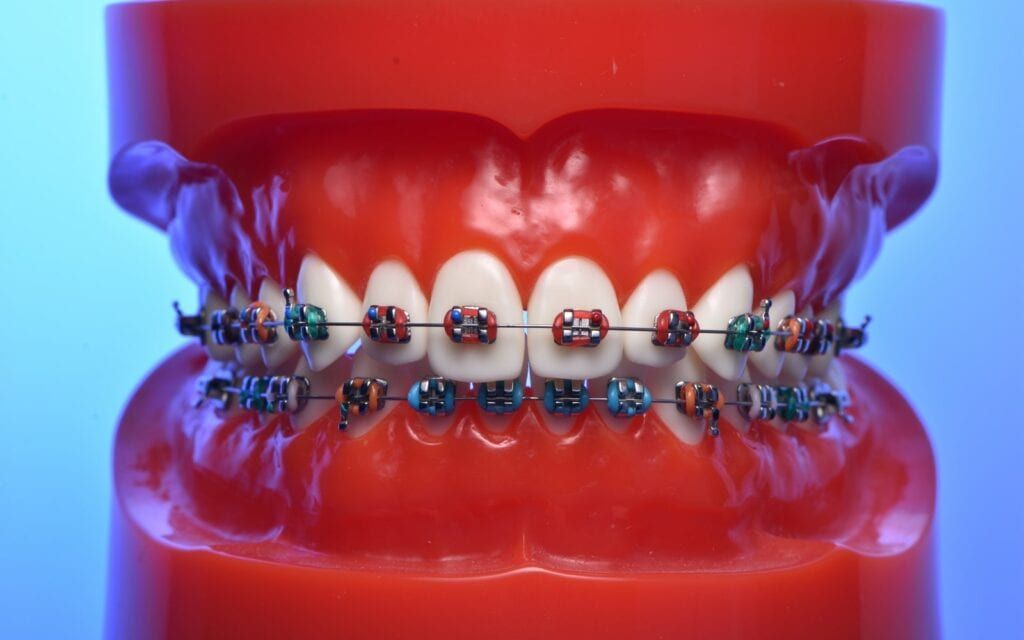Sitting up straight is often the most ignored advice given to patients. Slouching, sitting hunched over, and having poor posture, in general, can cause stress to your joints and muscles, causing them to become fatigued and overworked often. Having poor posture can affect your energy levels, your mood, and self-image, but did you know it can also affect your jaw alignment? Having poor head posture can lead to stress placed on the jawbone and other joints and muscles throughout the head. Through this constant pressure, the stress created from poor posture can cause your bite to become misaligned. But do these claims have any truth to them?
Having poor jaw alignment can lead to many dental problems, including malocclusion, TMJ disorder, and bruxism. It’s important that those suffering from these conditions find treatment through their local primary dentist or orthodontist. As such, we’re here to look deeper into the connection between poor posture and imperfect jaw alignment and understand the studies behind why posture affects jaw alignment.
The Connection Between Posture and Oral Health
Studies discussing the relationship between posture and oral health often cite that the main muscles that control our head movement are the jaw muscles. These muscles are most often used to provide our head with the balance it needs along the cervical vertebrae. The jaw muscles work alongside the neck muscles to initiate movement and assist the jaw in providing the movement it needs to support the teeth. Most often, when people discuss posture, they’re discussing the effects that posture has on our spines. Our spine plays an intricate role in maintaining the back muscles and supporting the internal organs. So, when our backs bend and hunch over to a certain extent, our neck muscles have more strain placed on them, which ultimately leads to improper jaw alignment.
Many studies have attempted to prove this concept by measuring the weight distribution of the head in relation to the spine. Because our heads sit atop the cervical vertebrae, our spines have to support our head alongside every other part the body needs to function properly. Our heads weigh approximately 8 to 10 lbs, and having good posture is an essential part of maintaining the health of our spines, our muscles, and our jaws. Posture even plays a critical role in our breathing patterns. Studies such as those found in the Medical Science Monitor have found that having poor posture restricts breathing patterns, which can ultimately affect the way we breathe through our nose and mouth. Having improper breathing through the mouth can lead to poor saliva production, a higher risk of tooth decay, and the potential for gum disease to emerge.
Ways to Improve Back and Jaw Posture
Even while studies have not been able to prove the connection between malocclusion, body posture, and breathing patterns, many medical professionals believe that there is a connection between our overall health and the parts of our bodies affected by various diseases and disorders. If someone suffers from gum disease, the bacteria from the infection can spread into the bloodstream, causing weaknesses to the immune system and can affect our heart and arteries. Gum disease can also affect our mental health, increasing the symptoms of conditions such as anxiety and depression.
This same logic applies to jaw alignment. Constant clicking within the jaw bone from poor posture can be considered a heavy nuisance and can increase the likelihood of having bruxism while sleeping. The degradation of the enamel from bruxism can lead the enamel to become more prone to bacteria, leading to tooth decay, tooth loss, and gum disease. No one wants this to happen, and that’s why we recommend the following tips to follow if you believe you may have poor posture:
- Back Exercises: Back exercises are considered one of the best ways to correct posture, as poor posture often overworks the muscles and causes them to become easily fatigued. Planks, bridges, chest stretches, and leg raises can all help strengthen your core and back muscles and help prevent jaw misalignment.
- Neck Rotations: Working out the neck is also considered a great way to prevent jaw misalignment. Stretching your neck muscles out can remove any signs of stiffness.
- Losing Weight: Losing weight through diet and exercise can also benefit your back, neck, and jawbone by removing the excess weight that places pressure along with the muscles and bones in your body.
- Comfortable Shoes: Wearing high heels and uncomfortable shoes can hurt your spine, so finding shoes that fit comfortably will help relieve your posture.
- Mindfulness: If you find yourself slouching, hunched over, and sitting on your legs, then paying attention is the best medicine for better posture.
As dentists, our careers revolve around preventing and treating dental problems that can impact our lives more than we’d expect. If you’re experiencing jaw problems, visiting your dentist for an appointment may be able to help.




